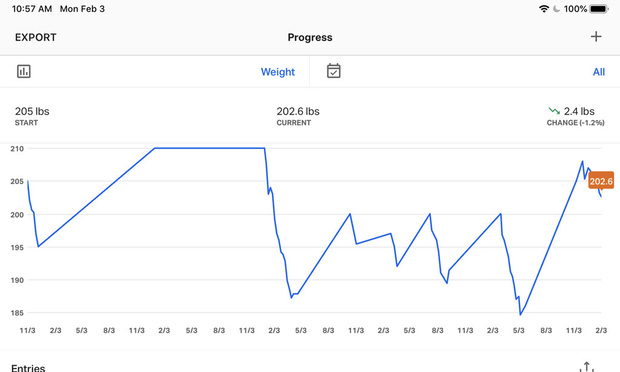Do You Have to Give Up Alcohol to Be Healthy?
The bottom line is alcohol is high in calories and low in most nutrients and it's tough to lose body fat, increase muscle or improve athletic performance while drinking a lot of the stuff.
March 05, 2020 at 01:11 PM
4 minute read
 Photo: Shutterstock.com
Photo: Shutterstock.com
I work with loads of successful, social and often highly stressed lawyers who enjoy the occasional (or more than occasional) glass (or two or three or four) of wine (or cocktails) at the end of the day and especially at work events.
 Sometimes they want to talk about it. Sometimes they don't. But usually at some point, I end up being asked what a reasonable alcohol intake looks like for their fitness and health goals. I don't tell people what to do. Have you ever tried telling a lawyer what to do? I provide them information and tools and serve as a resource to hold them accountable to what they decide.
Sometimes they want to talk about it. Sometimes they don't. But usually at some point, I end up being asked what a reasonable alcohol intake looks like for their fitness and health goals. I don't tell people what to do. Have you ever tried telling a lawyer what to do? I provide them information and tools and serve as a resource to hold them accountable to what they decide.
The bottom line is alcohol is high in calories and low in most nutrients. It's tough to lose body fat, increase muscle or improve athletic performance while drinking a lot of the stuff. The potential health benefits of low to moderate consumption are still being debated, and the risks of heavy drinking are well established.
We all know the legal industry is one of the most demanding professions and has high rates of alcoholic abuse, drug addiction, anxiety and depression. For many, drinking is fun and can be a normal part of a balanced social life. But it can very easily get in the way of a balanced, healthy lifestyle.
If you wonder whether you should take a look at how much you drink as it pertains to your goals, give this article a read. It's a fantastic and informative article by Camille DePutter of Precision Nutrition that explores the real trade-offs of alcohol consumption.
Curious how giving up alcohol can really move the wellness needle? Here's a typical example as captured by one of my training clients who is a partner at a top law firm in San Francisco. He sent me this screen grab of his MyFitnessPal (a popular food and weight tracking app) data, which tracked his weight over several years.
 (Courtesy photo)
(Courtesy photo)The long horizontal line near the beginning, at 210 lbs, reflects a period of years when he was not active on MyFitnessPal. Where it starts trending down was January 2017, when he got back onto MyFitnessPal and started tracking calories, refraining from alcohol, exercising regularly and losing weight. By maintaining a simple program of eating a balanced diet of 1800 calories, getting daily exercise through a combination of weight training and aerobic activity, refraining from any alcohol, and getting eight hours of sleep per night, he lost 23 lbs in four months.
Around May 2017 he started drinking wine socially again and stopped getting regular exercise. Each of the peaks since then reflects a new decision to get back on the program, and each of the valleys reflects the day he started drinking wine again and stopped getting regular exercise.
As you can see, alcohol consumption tends to arrest other healthier behaviors like eating healthy and exercising. In his own words "the key takeaways for me are tracking on MyFitnessPal and maintaining a simple program really does work for burning fat and losing weight and, second, at least for me personally, there is a clear correlation between drinking wine and gaining unwanted weight."
Cheers!
(Author's note: full disclosure, I happen to be sober. I wish I could drink moderately. My brain and body won't let me, so I abstain. But I don't push others to do the same. Again, I just provide information to help my awesome clients make informed decisions.)
Jonathan Jordan is a personal trainer, nutrition coach and corporate wellness consultant in San Francisco. Check out his blog JJ Fit 24/7.
This content has been archived. It is available through our partners, LexisNexis® and Bloomberg Law.
To view this content, please continue to their sites.
Not a Lexis Subscriber?
Subscribe Now
Not a Bloomberg Law Subscriber?
Subscribe Now
NOT FOR REPRINT
© 2025 ALM Global, LLC, All Rights Reserved. Request academic re-use from www.copyright.com. All other uses, submit a request to [email protected]. For more information visit Asset & Logo Licensing.
You Might Like
View All
What Qualities Will Distinguish Good from Great Service In 2025?

Trending Stories
- 1AstraZeneca Files Flurry of Lawsuits to Protect Cancer Treatment Drug
- 2American Airlines Legal Chief Departs for Warner Bros. Discovery
- 3New Montgomery Bar President Aims to Boost Lawyer Referral Service
- 4Deadline Extended for Southeastern Legal Awards
- 5Church of Scientology Set to Depose Phila. Attorney in Sexual Abuse Case
Who Got The Work
Michael G. Bongiorno, Andrew Scott Dulberg and Elizabeth E. Driscoll from Wilmer Cutler Pickering Hale and Dorr have stepped in to represent Symbotic Inc., an A.I.-enabled technology platform that focuses on increasing supply chain efficiency, and other defendants in a pending shareholder derivative lawsuit. The case, filed Oct. 2 in Massachusetts District Court by the Brown Law Firm on behalf of Stephen Austen, accuses certain officers and directors of misleading investors in regard to Symbotic's potential for margin growth by failing to disclose that the company was not equipped to timely deploy its systems or manage expenses through project delays. The case, assigned to U.S. District Judge Nathaniel M. Gorton, is 1:24-cv-12522, Austen v. Cohen et al.
Who Got The Work
Edmund Polubinski and Marie Killmond of Davis Polk & Wardwell have entered appearances for data platform software development company MongoDB and other defendants in a pending shareholder derivative lawsuit. The action, filed Oct. 7 in New York Southern District Court by the Brown Law Firm, accuses the company's directors and/or officers of falsely expressing confidence in the company’s restructuring of its sales incentive plan and downplaying the severity of decreases in its upfront commitments. The case is 1:24-cv-07594, Roy v. Ittycheria et al.
Who Got The Work
Amy O. Bruchs and Kurt F. Ellison of Michael Best & Friedrich have entered appearances for Epic Systems Corp. in a pending employment discrimination lawsuit. The suit was filed Sept. 7 in Wisconsin Western District Court by Levine Eisberner LLC and Siri & Glimstad on behalf of a project manager who claims that he was wrongfully terminated after applying for a religious exemption to the defendant's COVID-19 vaccine mandate. The case, assigned to U.S. Magistrate Judge Anita Marie Boor, is 3:24-cv-00630, Secker, Nathan v. Epic Systems Corporation.
Who Got The Work
David X. Sullivan, Thomas J. Finn and Gregory A. Hall from McCarter & English have entered appearances for Sunrun Installation Services in a pending civil rights lawsuit. The complaint was filed Sept. 4 in Connecticut District Court by attorney Robert M. Berke on behalf of former employee George Edward Steins, who was arrested and charged with employing an unregistered home improvement salesperson. The complaint alleges that had Sunrun informed the Connecticut Department of Consumer Protection that the plaintiff's employment had ended in 2017 and that he no longer held Sunrun's home improvement contractor license, he would not have been hit with charges, which were dismissed in May 2024. The case, assigned to U.S. District Judge Jeffrey A. Meyer, is 3:24-cv-01423, Steins v. Sunrun, Inc. et al.
Who Got The Work
Greenberg Traurig shareholder Joshua L. Raskin has entered an appearance for boohoo.com UK Ltd. in a pending patent infringement lawsuit. The suit, filed Sept. 3 in Texas Eastern District Court by Rozier Hardt McDonough on behalf of Alto Dynamics, asserts five patents related to an online shopping platform. The case, assigned to U.S. District Judge Rodney Gilstrap, is 2:24-cv-00719, Alto Dynamics, LLC v. boohoo.com UK Limited.
Featured Firms
Law Offices of Gary Martin Hays & Associates, P.C.
(470) 294-1674
Law Offices of Mark E. Salomone
(857) 444-6468
Smith & Hassler
(713) 739-1250










